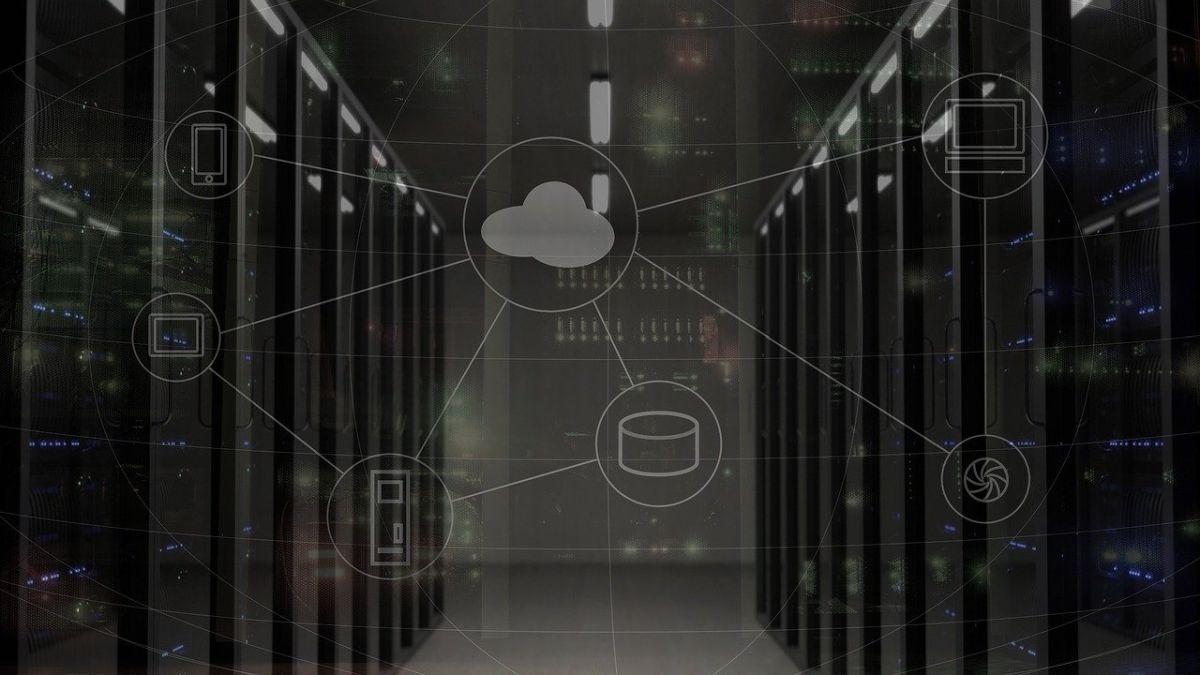GenAI & GCCs to Boost India's Economy: Deloitte
Deloitte report highlights the potential of GenAI and GCCs to drive India's GDP growth, exceeding USD 100 billion by 2030, with significant job creation and technological advancements.

Photograph: Kind courtesy Bethany Drouin/Pixabay
New Delhi, Apr 4 (PTI) India could see a substantial growth of USD 359-438 billion in GDP through adoption of GenAI and the country's Global Capability Centres (GCC) market would exceed USD 100 billion by 2030, Deloitte India said in a report.
The Technology Trends 2024 report: India perspective said GCCs are taking the lead in 2024, showcasing India's growing prowess in catering to international technology needs.
"With over 1,600 GCCs, India's GCC market is growing and creating its dominance globally. It is estimated that by 2030, the Indian GCC market would exceed USD 100 billion, with 2,500 GCCs across the country employing over 4.5 million people," it said.
The report pointed out a close connection between technological adoption and accelerated economic growth. Improved accessibility and government initiatives, it said, have led to a significant surge in digital technology adoption.
It said advanced technologies offer avenues for growth and efficiency, such as automating tax filing, using blockchain for secure tax transactions, and digitizing government processes.
"To drive technological advancement and maximise service transformation, organisations must invest in using GenAI effectively, in line with changing market dynamics," the global consultancy firm said.
Marking GenAI as essential for organisational competitiveness, Deloitte said Indian companies are diversifying their services by integrating AI-driven analytics, leading to a remarkable 2.7X growth in AI-related initiatives compared with the previous year.
"The GenAI market is expected to witness significant growth in the coming years, with an expected CAGR (compound annual growth rate) of over 24.4 per cent from 2023 to 2030. In 202930, India could see a significant boost to its GDP, ranging from USD 359 billion to USD 438 billion, through the adoption of GenAI, surpassing baseline estimates"
Highlighting the possible misuse of these tools, Deloitte said India's lack of cybersecurity awareness and a limited public understanding of synthetic media threats make individuals more susceptible to manipulation.
In India, the digital landscape is marred by a staggering vulnerability to phishing attacks, with nearly 30 crore people susceptible to online threats. Among them, an alarming 5 lakh individuals fall prey to scamsters every year who exploit various tactics to deceive unsuspecting victims, it said.
The most prevalent scams include customer care number/KYC/refund scams, accounting for 35 per cent of reported cases, sextortion at 24 per cent, online booking/fake franchisee/QR code scams at 22 per cent, aadhar-enabled payment system scams at 11 per cent; and Android mobile malware scams at 8 per cent.
Calling India a hotbed of technological innovation, Deloitte said companies are spearheading the adoption and development of spatial computing and metaverse solutions, leading to innovative use cases across sectors.
With the increasing penetration of smartphones and internet connectivity across India, and increasing accessibility to devices supporting spatial computing applications, Deloitte said the market for these technologies is expected to grow rapidly.
"India is expected to make its mark in spatial computing, with a projected revenue of USD 2.1 billion in 2024 and a CAGR of 40.03 per cent during 20242030."
The report said India is strategically positioning itself as a leader in exploring new solutions and fostering innovation in the fields of cloud computing, quantum computing, and AI supercomputing.
With businesses increasingly adopting hyperscale solutions, the Indian hyperscale market is expected to reach USD 10 billion by 2028.
Quoting a report by Oliver Wyman and NASSCOM, it said cloud technology will likely account for 8 per cent of India's GDP by 2026. It has the potential to boost the country's GDP by USD 310380 billion by 2026 and create 14 million jobs, it added.
Lauding India's Digital Public Infrastructure (DPI), Deloitte said it has played a pivotal role in India achieving 80 per cent financial inclusion within a span of just six years.
"The success of India's DPI is evident from the eight MoUs signed with other countries. Armenia, Sierra Leone, Suriname, Antigua, Barbados, Trinidad and Tobago, Papua New Guinea, and Mauritius have entered into agreements enabling them to access India's DPI at no expense and with open-source accessibility.
The Technology Trends 2024 report: India perspective said GCCs are taking the lead in 2024, showcasing India's growing prowess in catering to international technology needs.
"With over 1,600 GCCs, India's GCC market is growing and creating its dominance globally. It is estimated that by 2030, the Indian GCC market would exceed USD 100 billion, with 2,500 GCCs across the country employing over 4.5 million people," it said.
The report pointed out a close connection between technological adoption and accelerated economic growth. Improved accessibility and government initiatives, it said, have led to a significant surge in digital technology adoption.
It said advanced technologies offer avenues for growth and efficiency, such as automating tax filing, using blockchain for secure tax transactions, and digitizing government processes.
"To drive technological advancement and maximise service transformation, organisations must invest in using GenAI effectively, in line with changing market dynamics," the global consultancy firm said.
Marking GenAI as essential for organisational competitiveness, Deloitte said Indian companies are diversifying their services by integrating AI-driven analytics, leading to a remarkable 2.7X growth in AI-related initiatives compared with the previous year.
"The GenAI market is expected to witness significant growth in the coming years, with an expected CAGR (compound annual growth rate) of over 24.4 per cent from 2023 to 2030. In 202930, India could see a significant boost to its GDP, ranging from USD 359 billion to USD 438 billion, through the adoption of GenAI, surpassing baseline estimates"
Highlighting the possible misuse of these tools, Deloitte said India's lack of cybersecurity awareness and a limited public understanding of synthetic media threats make individuals more susceptible to manipulation.
In India, the digital landscape is marred by a staggering vulnerability to phishing attacks, with nearly 30 crore people susceptible to online threats. Among them, an alarming 5 lakh individuals fall prey to scamsters every year who exploit various tactics to deceive unsuspecting victims, it said.
The most prevalent scams include customer care number/KYC/refund scams, accounting for 35 per cent of reported cases, sextortion at 24 per cent, online booking/fake franchisee/QR code scams at 22 per cent, aadhar-enabled payment system scams at 11 per cent; and Android mobile malware scams at 8 per cent.
Calling India a hotbed of technological innovation, Deloitte said companies are spearheading the adoption and development of spatial computing and metaverse solutions, leading to innovative use cases across sectors.
With the increasing penetration of smartphones and internet connectivity across India, and increasing accessibility to devices supporting spatial computing applications, Deloitte said the market for these technologies is expected to grow rapidly.
"India is expected to make its mark in spatial computing, with a projected revenue of USD 2.1 billion in 2024 and a CAGR of 40.03 per cent during 20242030."
The report said India is strategically positioning itself as a leader in exploring new solutions and fostering innovation in the fields of cloud computing, quantum computing, and AI supercomputing.
With businesses increasingly adopting hyperscale solutions, the Indian hyperscale market is expected to reach USD 10 billion by 2028.
Quoting a report by Oliver Wyman and NASSCOM, it said cloud technology will likely account for 8 per cent of India's GDP by 2026. It has the potential to boost the country's GDP by USD 310380 billion by 2026 and create 14 million jobs, it added.
Lauding India's Digital Public Infrastructure (DPI), Deloitte said it has played a pivotal role in India achieving 80 per cent financial inclusion within a span of just six years.
"The success of India's DPI is evident from the eight MoUs signed with other countries. Armenia, Sierra Leone, Suriname, Antigua, Barbados, Trinidad and Tobago, Papua New Guinea, and Mauritius have entered into agreements enabling them to access India's DPI at no expense and with open-source accessibility.
You May Like To Read
TODAY'S MOST TRADED COMPANIES
- Company Name
- Price
- Volume
- Vodafone-Idea-L
- 11.65 (+ 3.56)
- 106772451
- Alstone-Textiles
- 0.28 ( -3.45)
- 44187760
- Mangalam-Industrial
- 0.88 ( -2.22)
- 39177573
- Sunshine-Capital
- 0.27 (+ 3.85)
- 35956340
- GMR-Airports
- 104.40 (+ 6.37)
- 30453005





